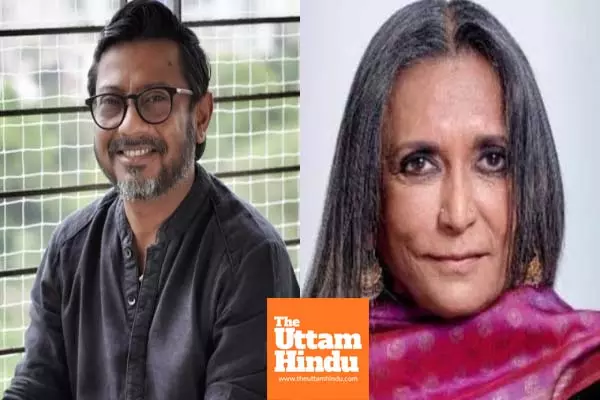
Deepa Mehta teams up with Onir for his queer love story set in Kashmir

Mumbai (The Uttam Hindu): Filmmaker Deepa Mehta has joined hands with acclaimed director Onir for his upcoming feature film, ‘We Are Faheem & Karun,’ a heartfelt queer love story set against the breathtaking yet turbulent landscape of Gurez, Kashmir. This new project promises to explore themes of love, identity, and resilience within the unique socio-political context of Kashmir.
Talking about the film, Onir shared in a statement, “This is not just a love story; it is a narrative about the complexities of human emotions amidst political and social turmoil.” He added, “Through Karun and Faheem, I wanted to explore the courage it takes to love in a world filled with uncertainty. I am grateful to Deepa Mehta for believing in this story and helping bring it to a global audience.” ‘We Are Faheem & Karun’ is set and shot entirely in the picturesque Gurez Valley with dialogues in Kashmiri and Urdu, offering a genuine cultural experience on screen. Giving a peek into the storyline, Onir revealed that the film traces the lives of Karun, a security guard from Kerala stationed at a construction site, and Faheem, a local Kashmiri college student. Through their journey, it sensitively explores themes of love, friendship, and the profound effects of geopolitical conflicts on individual lives. Speaking about her involvement, Deepa said, “The film, ‘We Are Faheem & Karun,’ is incredible.
Its themes of love, friendship, and duty are profound and universal. It is essential to highlight the heartbreak and humanity in geopolitical conflicts, and this film is particularly moving. Stories like this are so important right now.” The movie serves as the first installment in Onir's planned follow-up to his critically acclaimed anthology 'I AM'. Onir directs and produces the film under his banner, Anticlock Films. Onir is widely known for his movies, such as ‘My Brother…Nikhil’ and I Am. He won the National Award for his film ‘I Am’, which consists of four short films, ‘Omar’, ‘Afia’, ‘Abhimanyu’, and ‘Megha.’

